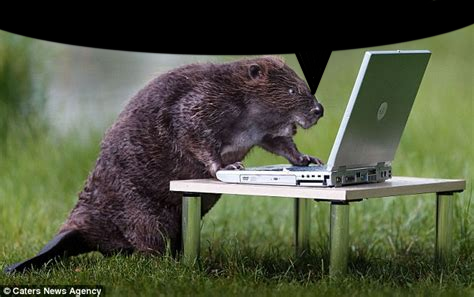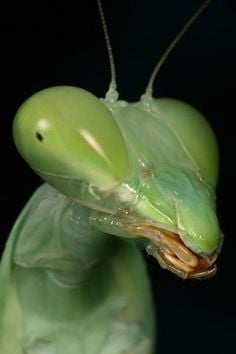
Removed by mod
To be fair like every good joke i stole this one
don’t beavers eat wood
Cinnamon and sumac are two common spices that are made from grinding up tree bark.
You using a different kind of sumac than the rest of us? https://en.wikipedia.org/wiki/Sumac#In_food
I stand corrected on that one. I assumed it was sumac bark, and you know what they say about assumption. It makes an ass out of u and mption.
The bit about powdered sumac (bark?) being a powerful dye for marble is pretty interesting. I wish there was an example photo.
That’s what whiskey is for
And smoking anything, it’s definitely part of food as a taste just not the wood it self as an ingredient.
Being used to make the fire/smoke that cooks the food is a really good point, wood is definitely food adjacent even if it’s not strictly edible.
It what? Who thinks wood smells edible?
deleted by creator
it still is?
It still is, but it used to, too.
RIP Mitch
He died doing what he loved. Drugs.
We should all be so lucky
He used to be alive. He still … oh never mind.
He is in my heart!
Only the expensive luxury stuff. The kind sold in tourist traps. Most maple syrup sold in stores is flavored corn syrup, which keeps the price down.
I think at that point it’s called “corn syrup” or just “syrup”. Maple syrup is still made from maple.
At least in the US, most “maple syrup” is literally maple flavored corn syrup or sometimes a blend but is just called Maple Syrup on the front of the bottle. Sometimes it’s called “pancake syrup” for legal reasons
No idea why you’ve got any downvotes.
This is very true. You have to search for actual maple syrup in the US.
EDIT: Yeah. I know how to find actual maple syrup, folks. There was a time long ago when products actually looked like what you were buying and weren’t all imitation crap. There was no such thing as corn-syrup labeled “breakfast syrup” or “maple-flavored syrup” or “Real syrup” in giant bold text and “with maple flavor” in tiny font somewhere distant.
Stop defending deceptive product labeling.
he’s getting downvoted cause what he said isn’t true.
If it says Maple Syrup, it is. From wikipedia: In the United States, a syrup must be made almost entirely from maple sap to be labelled as “maple”, though states such as Vermont and New York have more restrictive definitions.
your guy is calling corn syrup stuff maple syrup when all you gotta do is look at the dang label
I literally have never had a hard time finding real maple syrup unless I’m in a gas station or something.
Maybe it’s because I’m in the Midwest and sugar maple is absolutely everywhere, but it’s very, very easy to find real maple. Yes it’s more expensive, and absolutely yes it tastes far better.
Maple syrup to “pancake syrup” is like real butter to hydrogenated palm oil. My mother uses the Blue Bonnet margarine, and I used to use it growing up. As an adult I’ve only used real stick butter and god, going back home sometimes for dinner can really suck. Margarine is so chemical-tasting, how the hell do people butter their toast with it?
The downvotes are because he’s legally incorrect
Maple sirup is the liquid food derived by concentration and heat treatment of the sap of the maple tree (Acer ) or by solution in water of maple sugar (mapel concrete) made from such sap. It contains not less than 66 percent by weight of soluble solids derived solely from such sap.
https://www.accessdata.fda.gov/scripts/cdrh/cfdocs/cfcfr/CFRSearch.cfm?fr=168.140
You have to search for the word 'maple". If it just says Syrup, it’s made from corn syrup. This is true everywhere.
I think this might be a Kleenix vs. tissues type thing for some people. All syrup gets called “maple syrup” regardless of provenance? Then “real maple syrup” vs. “the fake stuff” makes a bit more sense.
Damn, now I want pancakes…
Hmm. I just went to Target’s website and searched “maple syrup” – even though they have a notoriously bad search, the first row of products were actual maple syrup. The second row had a mix between “pancake syrup” and actual “maple syrup”
OTOH, searching “pancake syrup” was the opposite – 5 corn syrups before any actual maple syrups.
“Maple syrup” is a legally protected name, the same way “butter”, “ice cream”, and “chocolate” are. There are legal requirements for their contents in order for you to call it that on the label. That’s why you see descriptions like “chocolatey” or “buttery” on cheaper products.
In which country?
I’m not sure for most countries, but I know both the US and Canada protect the terms.
I’m asking because laws, especially about food, differ a lot from country to country. It’s not a protected term in my country (NL), and I’m sure it isn’t in most countries outside the anglosphere. Heck, sometimes the same foodstuff can be legally protected with completely different requirements, “pindakaas” (peanutbutter) is allowed to contain a boatload of palm fat but hardly any sugar in the Netherlands, it’s the opposite in the US.
In my experience unless you’re in Vermont that is quite true but yeah in Vermont just about everyone makes their own maple syrup if I recall correctly we I believe banned corn syrup maple syrup because everyone here takes maple syrup very seriously
We burn different kinds of wood under our food to make it taste like that wood. Mesquite, apple, hickory, all come to mind. Wood smells really good.
If you’ve eaten shredded cheese from the store, then you’ve eaten wood.
Eating shredded cheese and wood is certainly a lifestyle
Maple syrup is tree blood. Kind like tree vampirism.
I don’t think wood smells like food. But I wonder… apparently termites have a bunch of gut bacteria to digest wood. Maybe if you eat raw termites and bark beetles, you can then eat some sawdust. If you continue the process eventually you may be able to eat wood or paper with your own gut biome. Maybe start with a termite, sawdust, and banana smoothie and move up from there. Best of luck.
“Tree vampirism”? Naw dude, we boil the tree blood down first. It’s concentrated tree vampirism.
Yeah, it stops being healthy because it’s ultra processed.
My dude, it’s pure sugar. It was never healthy.
Also, I’m not sure that boiling something down to thicken it counts as “ultra processed”.
deleted by creator
5/7 with rice. Thank you for the suggestion.
A grading scale like no other
U can eat it. Its just not particularly nutritious or paletable.
I still wonder why if we need more fiber in our diets we don’t just toss wood pulp in everything.
Apparently supplemented processed fiber gives you liver cancer though.
Tldr: Inulin bad.
I wonder how depression era sawdust bread would work though.
The study that your article references is a mouse study, so the relevance to humans is questionable.
In addition, fiber is shown to be beneficial to humans primarily when comparing the standard American diet to a high-fiber diet. This is likely because fiber is mostly non-digestable by humans (as we’ve lost the ability to digest fiber more than 2-million years ago unlike our closest living great-ape cousins), and acts as a physical barrier to the absorption of sugars and starches which also helps to lower insulin spikes.
If you do not eat a high-carb diet (such as a ketogenic diet), then eliminating the undigestable matter (i.e. fiber) from your diet is probably beneficial because you’ll be able to absorb more nutrients and get rid of constipation-related issues.
A lot of processed foods do have wood pulp in it. Often labeled celulose to hide that they just putting wood pulp in ur food.
For the majority of human history, we’ve eaten around wood (around a campfire, a hearth, etc), it makes sense it would become intertwined with our food palette
Skill issue.
We can, and do, eat wood. It’s listed as “cellulose” in the ingredients, and it’s in everything. Your ice cream, your bread, probably up in yo closet doin your Mamma right now
That’s made from plants, including trees, but that’s not really what I’m talking about.
Wood is notoriously hard to digest. After wood evolved, it took millions of years before funghi and bacteria evolved the ability to decompose it. And that’s why we have oil now.
Coal, not oil, but it’s still an interesting fact.
There was a point during that millions of years where there were areas of thousands of feet deep layers of dead trees. It still boggles my mind.
Would you be willing to find a good article explaining this further? This sounds really neat and I’d like to know how scientists figured this out :O
Wood is the reason for climate change!
OP confirmed for beaver with dental issues.
It might interest you to know that we do eat wood when we eat that sprinkled parmesan or romano cheese in the plastic containers: It contains wood to prevent the cheese from clumping (and it counts as fiber)
Thank God I can eat cheese to get my fill of wood for the day.
Mmm, anti caking agents…
If you consider cellulose to be wood, sure. They don’t put actual wood in there.
What cellulose do they use then?
Cellulose can come from just about any type of plant. Cotton is almost entirely cellulose, for example.
I don’t know what their cellulose comes from, but saying cellulose is trees is like saying milk is cheese.
All shredded cheeses, I believe.
Many shredded cheeses are mixed with corn and/or potato starches rather than cellulose (which is not wood either)
Thanks for the info!
I’m… not so sure about this. Also we can eat paper and that’s just mashed up wood, right?
We can consume it, but we can’t digest it.
Also, we should consume it (or other types of dietary fibre)
https://www.ncbi.nlm.nih.gov/pmc/articles/PMC3614039/
Dietary fibre is that part of plant material in the diet which is resistant to enzymatic digestion which includes cellulose, noncellulosic polysaccharides such as hemicellulose, pectic substances, gums, mucilages and a non-carbohydrate component lignin. The diets rich in fibre such as cereals, nuts, fruits and vegetables have a positive effect on health since their consumption has been related to decreased incidence of several diseases. Dietary fibre can be used in various functional foods like bakery, drinks, beverages and meat products. Influence of different processing treatments (like extrusion-cooking, canning, grinding, boiling, frying) alters the physico- chemical properties of dietary fibre and improves their functionality. Dietary fibre can be determined by different methods, mainly by: enzymic gravimetric and enzymic—chemical methods. This paper presents the recent developments in the extraction, applications and functions of dietary fibre in different food products.
Not that we should go around gnawing on wood like beavers, but maybe that’s why some indigestible foods seem like we should be able to eat it
See also celery?
Celery shouldn’t be eaten.
LOL, well-played.
deleted by creator
I’m guessing it sort of came from the fact that we cook food with burning wood. Less so now, but burning wood meant cooked food for 200k years.
I don’t think wood smells like it is edible, but a fire can remind me of food through smell.
You can bake sawdust into bread lol https://youtu.be/MTC_ETWa3JA
Or a Rice Crispy if you’d rather
Also if you believe the stories ive heard from pizza chains like Papa Johns and Domino’s, sawdust is regularly added to pizza dough to make it cheaper to produce
















